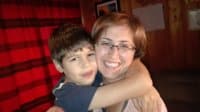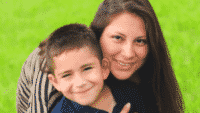An emotional project is a set of persistent feelings or behaviors that come up for your child again and again. When the same feeling or behavior is triggered many times in somewhat similar situations (like always hating to go to school or daycare, or always becoming aggressive if other children crowd too close), it indicates that there’s a big hurt under the surface. To heal that hurt, you’ll need to listen many times to the same big feelings—“You don’t care about me!” or “It’s not fair! It’s never fair!” As your child cries or rages and you listen with care, the two of you together will drain that big hurt, and change your child’s overall outlook on life and on his relationship with you.





